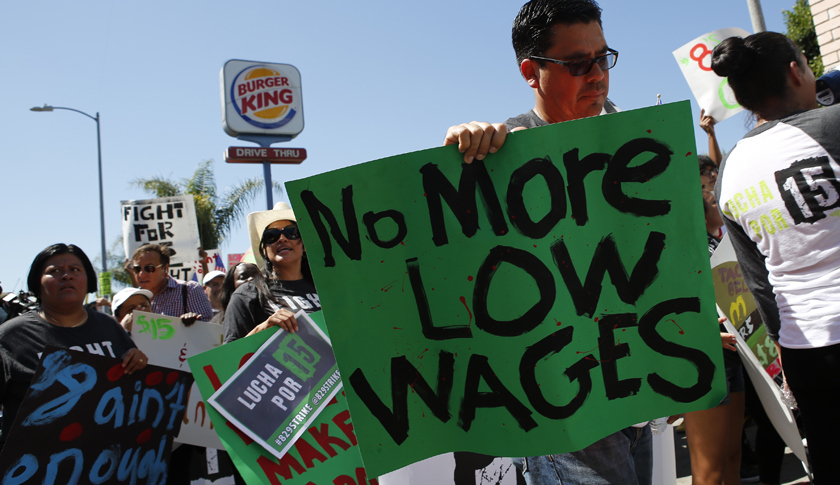
The $15 per hour minimum wage is slowing sweeping the country. Seattle implemented it first; San Francisco and Los Angeles followed suit, and a sector of the New York economy could be next.
But a report published Thursday indicates that the state might want to think twice about that sort of hike.
In May, New York Governor Andrew Cuomo empaneled the state’s three-person wage board to consider raising wages for fast-food workers, who are currently subject to the state’s $8.75 per hour minimum rate. The board’s recommendations are expected by July and the governor could enact them without approval from the state legislature.
How minimum wage hikes affect employment is a long-debated issue, with some research showing that increases have little—if any—negative impact on employment, while other studies indicate that they kill jobs and force price increases.
A report published Thursday by the Employment Policies Institute, a conservative think tank, gives additional credence to the latter theory. It surveyed 924 restaurants in New York State that self-identified as fast food operations. When asked how likely they are to raise prices in response to a $15 per hour minimum wage, 86% of respondents said that they were very likely or somewhat likely to do so. Eighty-three percent said they were very likely or somewhat likely to reduce workers’ hours, or reduce staffing levels in response to such a hike.
The report said that its results “suggest that the wage board should proceed with caution in its recommendations.”
Noah Smith, an assistant professor of finance at Stony Brook University, argued last week that the recent $15 minimum wage increase in Los Angeles should be considered a good thing no matter the research camp you’re in, since it will finally answer the question of what effect a minimum wage increase will have on employment. The jump from the city’s current $9 rate to $15 is large enough to represent “the closest thing we’ll get to a random controlled trial.”
More Must-Reads From TIME
- The 100 Most Influential People of 2024
- The Revolution of Yulia Navalnaya
- 6 Compliments That Land Every Time
- What's the Deal With the Bitcoin Halving?
- If You're Dating Right Now , You're Brave: Column
- The AI That Could Heal a Divided Internet
- Fallout Is a Brilliant Model for the Future of Video Game Adaptations
- Want Weekly Recs on What to Watch, Read, and More? Sign Up for Worth Your Time
Contact us at letters@time.com